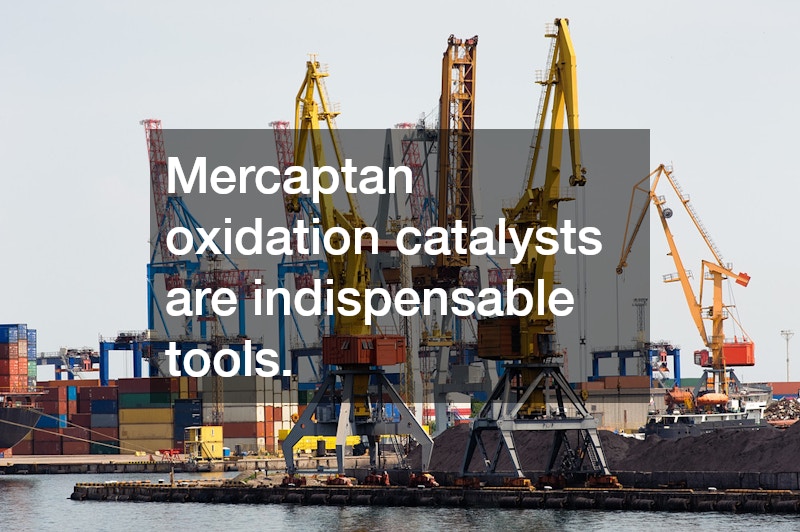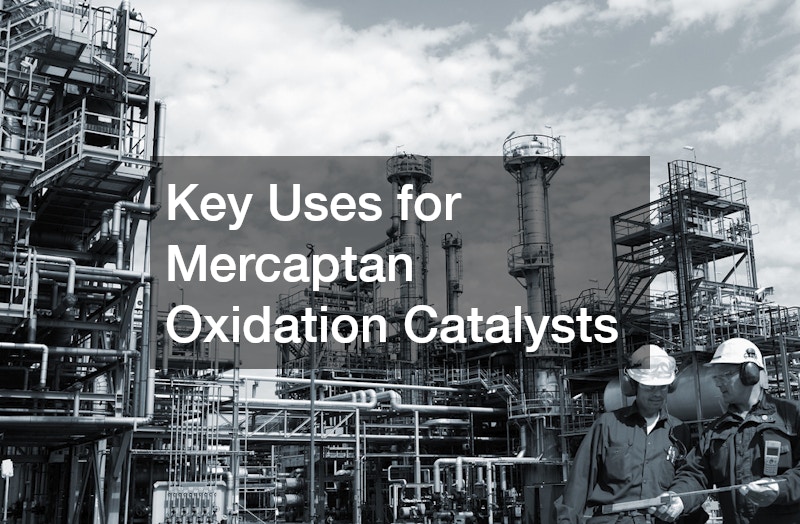In the complex landscape of chemical processing, the role of mercaptan oxidation catalysts is becoming increasingly pivotal. These catalysts have garnered attention for their unique ability to facilitate the oxidation of mercaptans, a class of sulfur-containing organic compounds. Understanding the key uses of these catalysts highlights not only their importance in environmental management but also their industrial applications ranging from petrochemicals to pharmaceuticals.
Basics and Impact of Mercaptans
Mercaptans, also known as thiols, are organic compounds characterized by their pungent odor and the presence of a sulfur atom. These compounds are found naturally in crude oil, natural gas, and even in some living organisms. Despite their usefulness, mercaptans can pose environmental concerns due to their pungent smell and corrosive properties.
The oxidation of mercaptans is a critical process in industries where these compounds are prevalent. Left untreated, mercaptans can lead to the contamination of air and water, posing significant health risks. Consequently, their presence is particularly unwelcome in refining processes and must be carefully managed.
Industrially, mercaptans are primarily managed through chemical reactions that convert them into less volatile and less harmful forms. Mercaptan oxidation catalysts serve as a cornerstone in this conversion, enabling efficient transformation and minimizing environmental impact. These catalysts engage in chemical reactions that alter mercaptans, making industrial processes much safer.
Role of Mercaptan Oxidation Catalysts
Mercaptan oxidation catalysts facilitate the oxidation process by providing an active surface where chemical reactions can occur more readily. Their primary function is to convert mercaptans into disulfides, which are less odorous and corrosive. This transformation is essential in ensuring compliance with environmental regulations and improving air quality.
One of the notable features of these catalysts is their ability to operate under various temperatures and pressures, making them versatile for different industrial applications. This adaptability allows them to be used in both upstream and downstream processes, playing a vital role across the entire oil and gas lifecycle. By providing a robust framework for reactions, these catalysts ensure the efficient processing of hydrocarbons.
Applications in the Petrochemical Industry
In the petrochemical industry, the presence of mercaptans can severely affect the quality of the final product. Mercaptan oxidation catalysts are employed to remove trace amounts of thiols from petroleum streams, ensuring a higher-quality product. By reducing sulfur content, these catalysts contribute to the production of cleaner fuels, vital in meeting stringent air quality regulations.
The removal of mercaptans is also crucial in preventing the corrosion of equipment, which can lead to costly maintenance and downtime. Catalysts allow for continuous processing without the need for extensive operational halts, thereby improving overall plant efficiency. This operational advantage underscores the economic significance of mercaptan oxidation catalysts within refining operations.
Additionally, the use of these catalysts supports the creation of petrochemical intermediates. These intermediates are essential building blocks for other chemical products, emphasizing the catalysts’ importance in broader chemical syntheses. Thus, beyond just refining, these catalysts contribute to the entire value chain of the petrochemical industry.
Impact on Environmental Management
Environmental management is significantly impacted by the application of mercaptan oxidation catalysts. By reducing the emission of harmful sulfur compounds, these catalysts play a key role in air pollution control. They enable industries to adhere to environmental standards and contribute to global efforts in combating air pollution and climate change.
The adoption of these catalysts supports sustainable industrial practices, lowering the carbon footprint associated with petrochemical processes. By decreasing sulfur emissions, industries not only comply with regulations but also mitigate their environmental impact. This dual benefit of compliance and sustainability is central to modern chemical engineering practices.
Future Prospects and Development
The future of mercaptan oxidation catalysts looks promising with continuous research into enhancing their efficiency and sustainability. Emerging technologies and materials science are opening new avenues for catalyst development, potentially leading to even more effective solutions. This evolution is crucial as industries face stricter environmental regulations and the pursuit of greener practices.
Ongoing collaborations between industry leaders and research institutions are expected to drive innovation. These partnerships aim to develop next-generation catalysts that not only offer superior performance but also lower environmental impact. Such advancements could revolutionize how industries approach mercaptan management.
Mercaptan oxidation catalysts are indispensable tools in the pursuit of environmentally responsible and economically viable industrial processes. Their role in transforming sulfur compounds into less harmful entities cannot be overstated, particularly in the petrochemical industry. As technology advances, the significance of these catalysts in fostering cleaner, more efficient operations will continue to grow.
.


